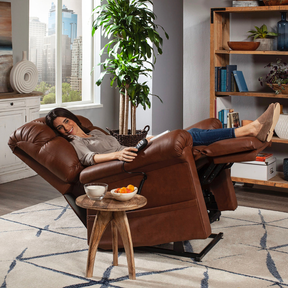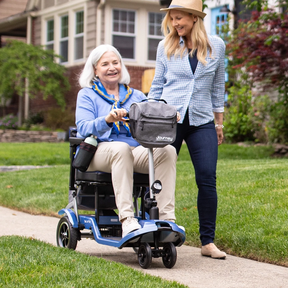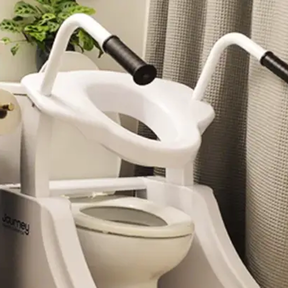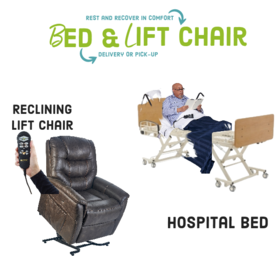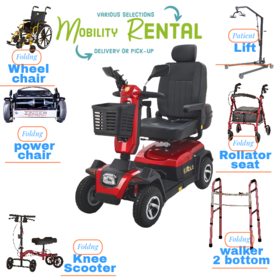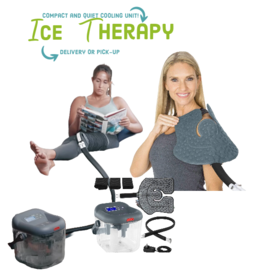Blog You will need Shower Stools, Shower Chairs and commodes when you are recover
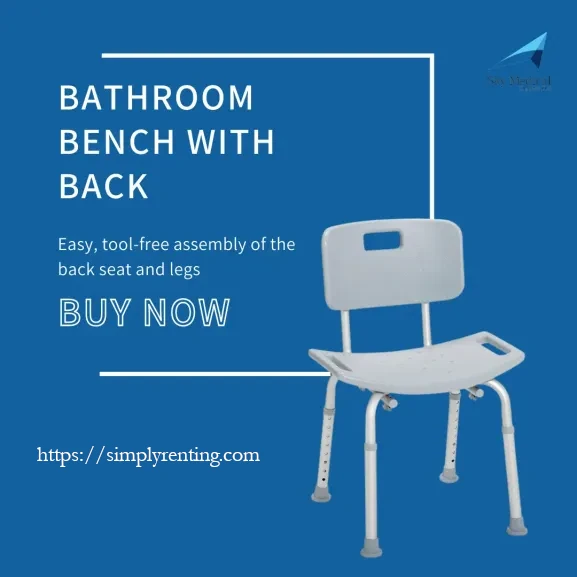
While researching shower chairs, shower stools, and bedside commodes, you'll probably have noticed a huge range of options available, and not all of them are great. In-shower plastic stools and shower chairs are two common questions among the mobility community regarding bathroom assistive equipment.
Furthermore, several poor-quality shower stools are marketed as shower chairs with backs, resulting in more confusion. Several of our clients have tried cheap and poor-quality options before coming to Sky Medical Supplies. 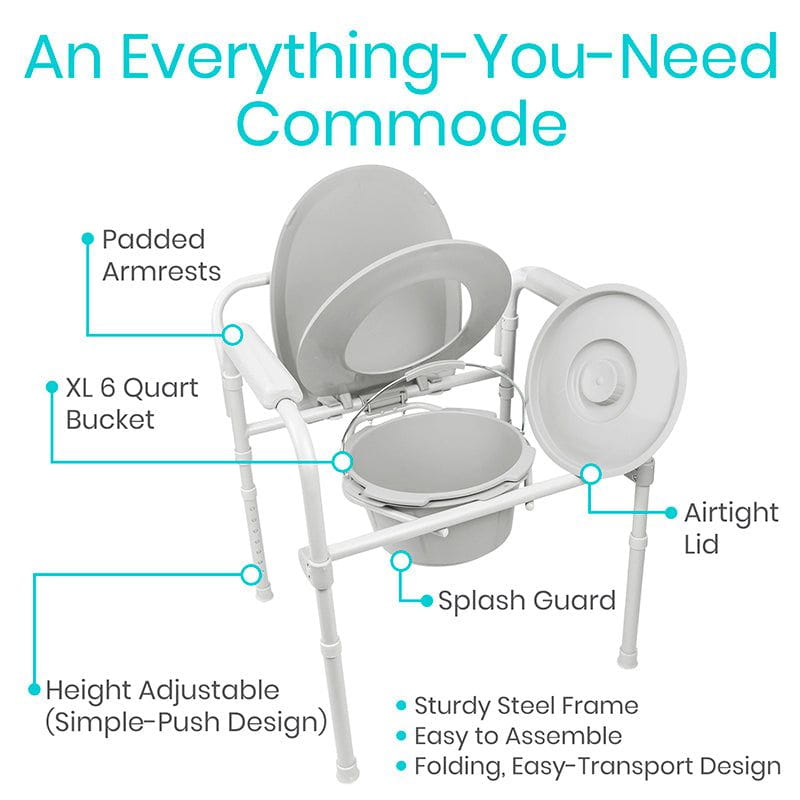
Bedside Commodes
A commode chair is a type of portable chair with a hole or opening in the seat that can be used as a toilet. It usually has a container or a pan placed underneath the seat to collect waste, which can then be easily emptied and cleaned. Commode chairs are often used by people with mobility issues or disabilities who have difficulty getting to a regular toilet. They can also be useful for people recovering from surgery or illness who cannot move around easily. Commode chairs come in various sizes and styles, including folding and adjustable options.
You'll learn here what makes a low-quality shower stool different from a proper shower chair, enabling you to choose the one that's right for you.
The difference in Quality materials
The shower stool consists of low-quality plastic and metal.
More specialist assistive equipment comes with greater care and attention to detail than a simple shower stool. The materials used for these products are often low-grade plastics, which are easy to clean and dry. Eventually, poor quality plastic wears through tension under load due to its poor quality.
During a lifetime, a shower stool's frame, which includes the seat (and user) bracing and legs, must remain durable. There are many cheap shower stools without durable metal frames. A bend, buckle, or failure can result from this.
An overlooked element of a shower stool can affect its performance - and that is the fittings that hold the parts together. In the long run, weak bolts, screws, washers, and feet can lose components or fall apart if they don't secure tightly.
Proper shower chairs should be designed for user comfort and with long-lasting materials.
Conversely, proper assistive technology designed specifically for use by severely impaired users and their supporters will most likely offer superior parts and build quality. Materials that appear in a good shower chair include aluminum, stainless steel, PVC, and other medical-grade materials.
Our selection of these components will depend on their long-term durability and ability to provide smooth daily operation. The difference between these products is usually in the way they come together.
When it comes to assisted technology, proper welding, and machining ensure that the chair's frame, fittings, seating, and rests are all functional. A basic shower chair can be made with just a few steps to send the unit out, whereas proper assistive technology requires expert welding and machining.
Besides enhancing durability, this build quality makes installation easier for families and occupational therapists.
The difference in Product functions
Using shower stools is not feasible for users with significant mobility issues.
Individuals who need help to enter and exit the shower will not benefit from a basic shower stool. A basic, inexpensive stool may serve the purpose of a seat for someone who is merely exhausted and needs a seat, but their mobility will only be maintained for a short time.
These mass-produced cheap shower stools would not likely benefit anyone with significant disabilities. To bathe safely, for example, a person with paraplegia would require more sophisticated equipment.
Multi-featured shower chairs support the user's safe bathing needs
Shower transfer chairs perform several more complex tasks than just sitting in the shower. To accommodate those with mobility impairments, a good shower chair system should allow them to move around the bathroom, use the toilet, and adjust their body positioning.
This is why so many people worldwide prefer a proper shower chair over a cheap alternative. Those with reduced mobility can benefit from a system that may initially appear to be a nuisance but eventually becomes an indispensable companion to dignified bathing.
Shower stools are typically inexpensive.
You'll probably find many product ads and listings for stools that are low cost if you Google the term 'shower stools.' It usually has a hollow metal leg and a plastic seat. Rubber grip feet may also be present.
The challenge for OTs and users when looking for a bathroom mobility solution is that the market offers low-
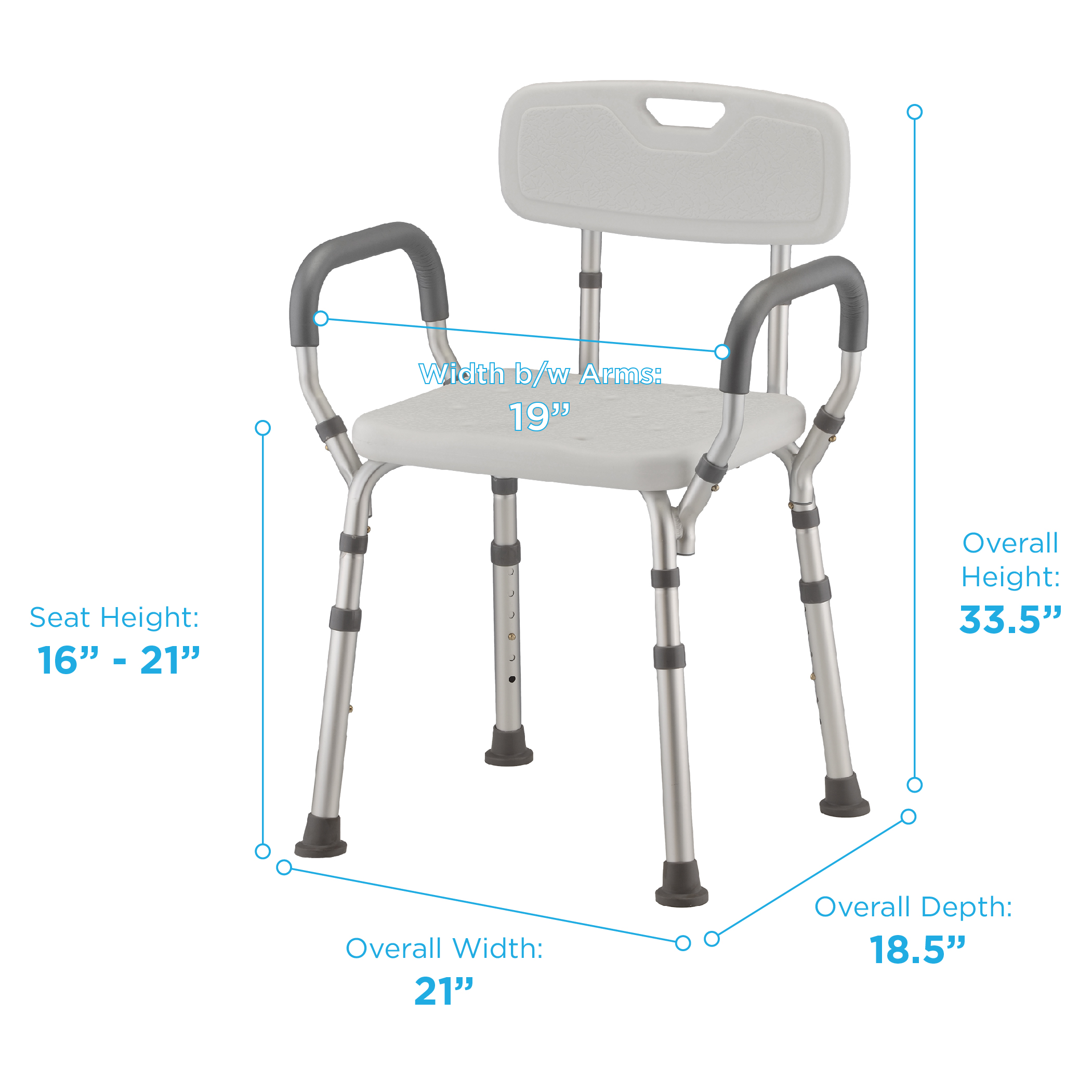
quality options and sophisticated assistive equipment. We'll refer to shower stools when discussing the basic, cheap options available at retail.
Because they aren't expensive to make and can be scaled to fit a variety of mobility types, basic shower stools are inexpensive. An individual who gets the most value from a basic shower stool probably doesn't have significant mobility issues.
The cost of advanced shower chairs is higher than that of a basic stool, so funding is readily available. It still costs much less to install a shower transfer system than to remodel a full bathroom.
The difference in The transfer process
Shower stools don't support the transfer process.
Getting into and out of the shower is one of the more hazardous moments in the bathroom. The primary purpose of a shower stool is to provide seating. Even if the shower stool is more of a 'transfer bench,' elongated and
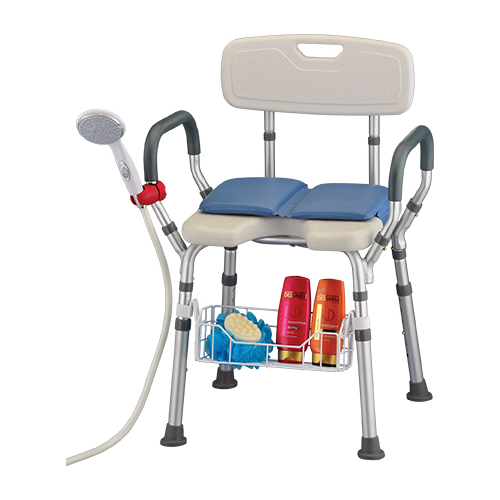
extending over the bathtub's edge, a caregiver still has to lift the user.
Heavy straining and irregular weight distribution are responsible for many avoidable caregiver injuries. Otherwise, a shower stool will only assist when entering or exiting the shower.
In most cases, someone with impaired motor function requires the help of a carer or family member to use the bathroom - including moving from the bath into the toilet.
Therapists have also seen these low-cost transfer benches cause client falls or slips. There is little seated support, and with transfers being a difficult process, extreme care is necessary, requiring a more client-focused product.
The right shower chair enables lift-free bathroom usage and transfers.
Shower transfer systems eliminate all of these headaches. After sitting on the shower chair, the user should be able to transfer again if the system works for their bathroom configuration. Without the use of carer lifts, users should be able to access the toilet, shower, and basin without assistance.
We offer a variety of transfer products that allow you to clear almost any bathtub or step-in shower edge using a combination of a chair, a Handheld shower for a shower chair, and a Bath seat basket. Assistive equipment replaces human effort with this approach. Contact Sky Medical Supplies to get the right product for you.
Tags
- contest
- event
- supplies
- design
- brand
- video
- Compression
- upright walker
- four wheel walker
- rollator
- wheelchair
- Ostomy
- elegantly
- elegantly
- accessibility
- Mobility
- knee walker rental
- knee scooter sales
- knee scooter
- post operative shoe
- anti-embolic stockings
- pain management
- cryotherapy therapy
- hot cold compress
- compression stockings
- lift chair
- wound Care
- air purifier
- fall prevention
- cushion
- oxygen therapy
- cpap, bipap
- Hospital Bed
- Life Aide
- EMS
- recovery
- splint
- knee brace
- Bathroom
- patient lift
- medical supply
- Wound dressings
- Lightweight Wheelchair
- hospital beds for sale
- sky medical supplies rentals
- compression socks
- Adult Diapers
- Rollator Walker
- Bed Wedge Pillow
- Hospital beds
- Patient Lifts and Slings
- Portable Oxygen Concentrator
- Patient Lift Slings
- knee scooter rental
- folding mobility scooter
- mobility scooter
- medical shoes
- raised toilet seat
- hospital beds for rent
- lift chair recliner
- chair lift
- electric wheelchair
- Power Lift Recliners for Elderly
- Senior Walkers
- Bedside Commodes
- whill wheelchair
- compression hose
- Whill Electric Wheelchairs
- Bariatric Wheelchair
- Recliner Chairs with Lift
- Colostomy Bag
- Crutches
- Medical Wedge Pillow
- skin barrier tape
- Post Surgery Ice Machine
- Bedside Commode
- chair lift recliners
- cane holder scooter
- lift chair prices
- drop arm commode
- rollator walker with ergonomic seats
- Hospital Bed Rental
- Wheelchair Tray
- Golden Technologies Lift Chair
- Nova GetGo Junior Rollator
- power lift recliners
- Knee Scooters and Crutches:
- stand up walker for seniors
- stand up walker as seen on TV
- Women's Walking Canes
- Knee Immobilizers
- Bed Wedge Pillow
- Medical Supply Stores
- Sit to Stand Lifts
- Grab Bars
- Compression Gloves
- incontinence bed pads
- Lift Reclining Chair
- Knee Walker Scooters
- Hernia Belt Near You
- Mobility Scooter Stores Near Me
- Folding Knee Walker
- Oxygen Concentrator Store
- Inogen Battery
- Electric Bed Frames
- Placing Lift Chair
- diaper brief
Related Posts
Get weekly articles in your inbox on the latest medical supply news, exclusive deals, and helpful health tips.
